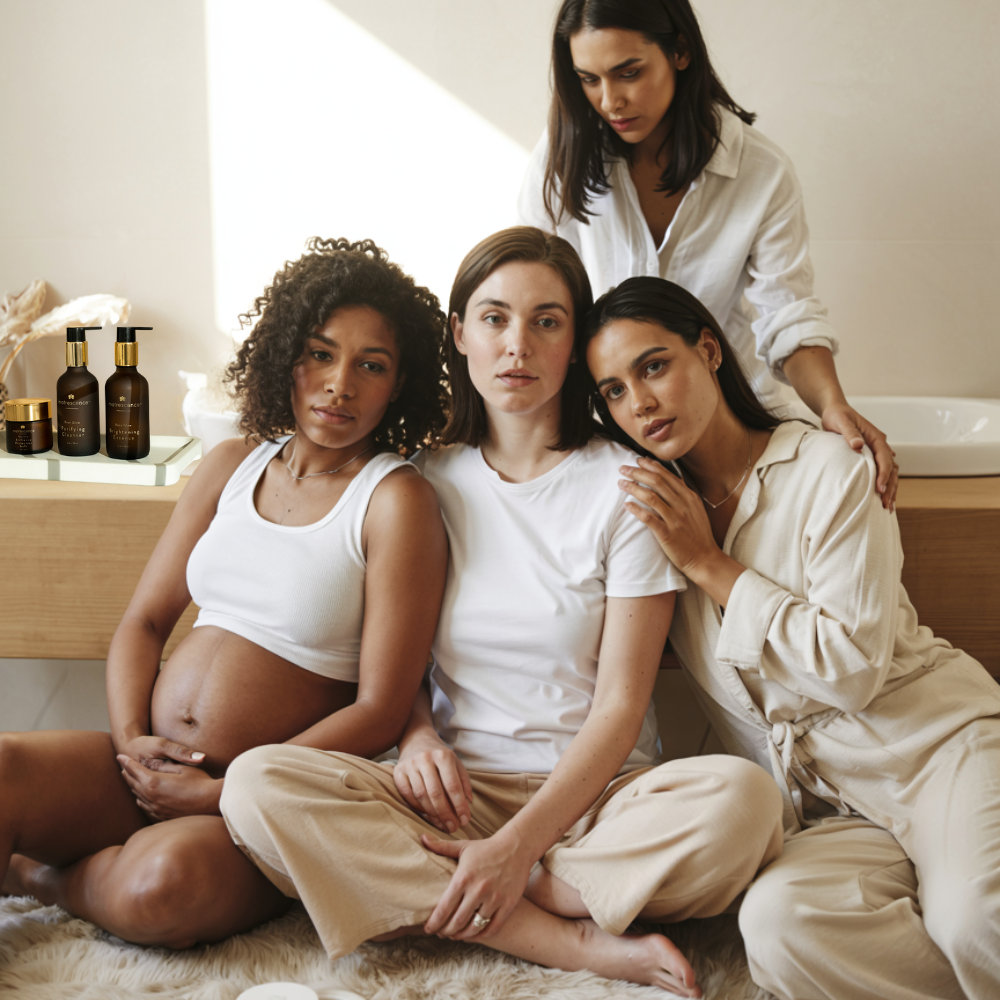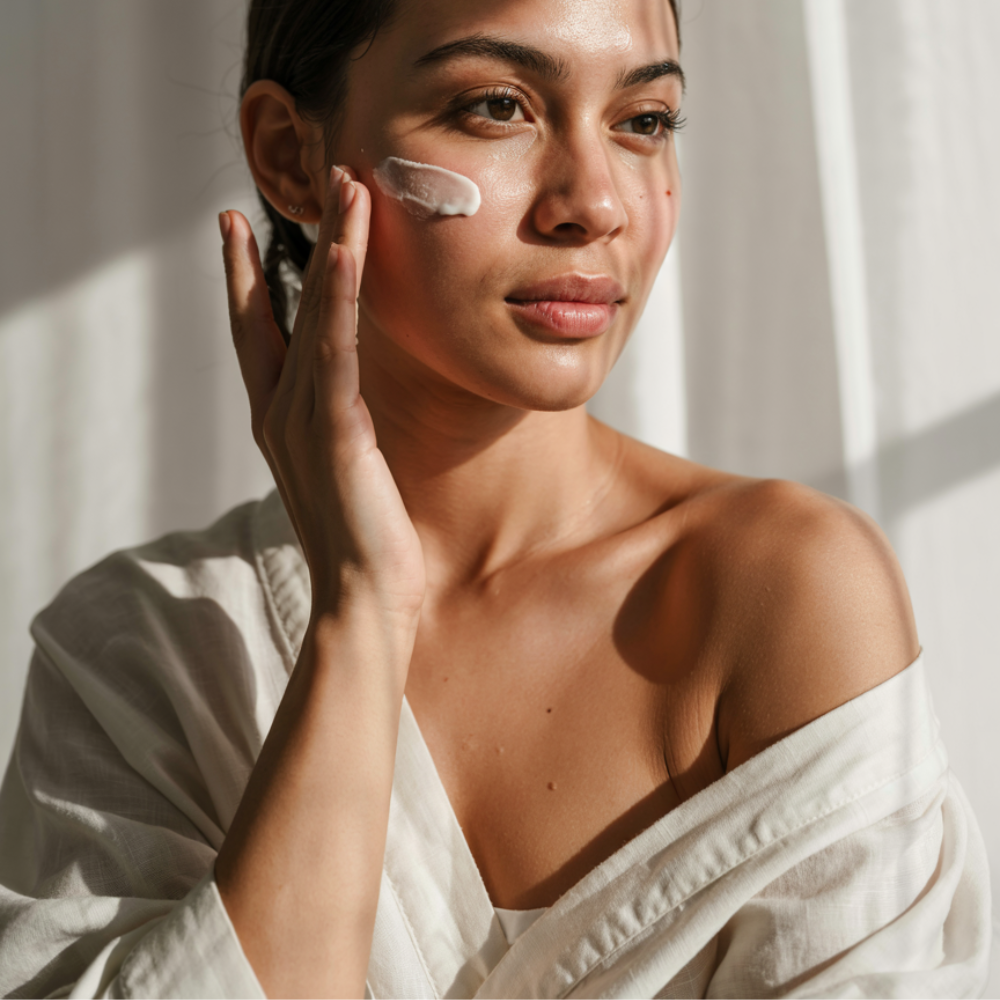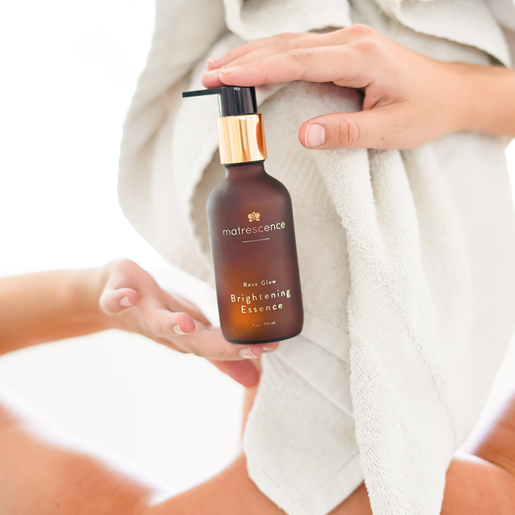Jules Theis became a mother in a traumatic and terrifying way. Now a mom of three, the writer and business owner chats with us about the lessons learned in motherhood, including the impact of healing her own inner child and how it improved her relationships with her own children. She reflects on the joy of learning that she could just “be” her authentic self when showing up for her children, and reminds us how crucial it is to care for ourselves as moms, especially in those early postpartum days.
Jules, tell us a little about you:
I’m a Canadian born published writer, digital creator and motherhood storyteller. After being a stay-at-home mom for four years to my two boys, I created the first English speaking social media management and content creation company in the South of France. Working solely with female led businesses, I built a successful independent creative hub where my passions for photography and writing came to life. When France locked down in 2020, I made the difficult decision to put my business on pause, and in that time I began writing my debut memoir on motherhood trauma called Born in the Beyond.
I live in beautiful Cannes, France with my French husband James, and our two boys and baby girl. When I am not writing or creating content, I am usually on the beach enjoying the sun and sea with my family, most likely with a glass of rosé in hand.
What was the most unexpected part of your own motherhood journey?
One aspect of motherhood I could have never expected, in a positive way, was the aspect of healing I got for my inner child. I had never heard the term ‘inner child’ until I had my own child, and I could see how much of myself as a young kid was reflected back in him. Like me, both of my sons are expressive in their feelings and have big emotions. So big, in fact, that the whole house knows about them. When I was a child, my big emotions were met with a great deal of time-outs and silencing. My emotions always caused me a lot of shame, because I didn’t know what to do with them. Now as a parent I have been able to heal the shame my inner child held onto, by mothering my childrens’ emotions the way I wish my own had been thirty years ago. This has unexpectedly allowed me to express my emotions as an adult as well, and has opened up many conversations not only between my kids, but my husband as well.
Together we have come up with ways to work through the heavier feelings through breathwork, taking a minute away to calm down or talking about it. I’m no expert, though I do know we all share the need to feel seen, and this is how I approach anger, sadness, joy or fear. As Dr. Becky Kennedy says, kids just want to know that we believe them, and this starts with emotions.

How does Matrescence’s Mission to “mother the mother” resonate with you as a mom? In your career?
The term “mother the mother” was completely foreign to me until I had my third baby. Just a few years ago when I first gave birth, most of the mothers I saw got straight back into ‘normal’ life as soon as the baby came home, so I did the same. No one was mothering me when I became a mother, despite my Mum flying in from Canada to help. I remember longing for the feeling that I was being taken care of or held, and that I had someone to lean on. Social media at that point was a place to pretend, and so like the other mothers I added a filter and posted posed photos with my baby, never speaking about the difficulties I was facing.
Through the years I began opening up about my motherhood challenges, and have created a motherhood community through Instagram and my motherhood writing, which has become a lighthouse through dark times. This motherhood community has guided, listened, and offered solidarity to me, and in turn I have given this back to new mothers. I believe it is our duty as mothers to mother the future ones, who don’t yet know what they are about to endure. There are still so many conversations that remain taboo around birth, the postpartum experience, sex after birth, perineum health, the mental load of motherhood, and the list goes on, and because of this I felt such an urge to open the dialogue up within my own community. I am now hoping to mother the mother even more through sharing my motherhood story with my forthcoming debut memoir, Born in the Beyond.

What is the best thing you learned about parenting and who did you learn it from?
My own three beautiful children taught me the best thing about parenting: I don’t have to do anything special or pretend to be anything I am not, they just want to be with me, that’s it. When I was a child I tried desperately to be accepted and fit into a specific box for people to like me, but it never worked. Becoming a parent has been so healing for me because I don’t have to try to be anything other than myself with my kids, and they love me for it. All kids want to do is spend time with their parents and feel seen, and it is the best feeling knowing that I can provide that for them.
I feel the pressure as a modern day parent to be everything and do everything for my kids, but what they have taught me is that simple is often better. And whether we are watching a family movie, sitting and drawing at the table, baking, or just going for a walk, I can show up as myself and it’s enough for them.
What do you think is the most challenging aspect of being a mom, and how do you manage it?
When I became a mother, I wore that label so proudly that I was blinded by all the responsibility, love and energy that came with it. I poured every ounce of myself into my two first babies, and never stopped to give back to myself. I was a wonderful mother and for the most part enjoyed my experience, though never coming back to me and taking time to discover the woman I was after giving birth made me feel lost. It took years to feel normal and get to know who I was, so once I had my third baby last year I consciously worked hard every day to not lose myself again.
During the first six weeks postpartum, I made sure I was taken care of just as well as my baby. I rested while my baby did, I accepted my body for all it had been through, and I showed myself love by easing back into normal life. My baby is now 13 months, and I still choose to give back to myself by listening to my own needs, along with my children’s. Open communication with my husband has helped and he can see how much easier this postpartum experience has been, and how much more I enjoy not only my role as a mother, but my relationship with myself separately. I hope more future mothers can see the importance of taking care of themselves alongside their children.

How has motherhood changed you as a person, and what have you learned from the experience?
The moment I was becoming a mother for the first time was the moment I was taking what could have been my last breath. I died during the final push of labor due to an eclampsia induced seizure and woke up the next day alone in the ICU, not knowing I gave birth to our baby boy. I entered motherhood at rock bottom, with no connection to my baby and postpartum depression. It was the hardest time of my life and it changed every aspect of it. The first year after our birth trauma I was in survival mode, I was just trying to get through each day without feeling like a complete failure. But as the months ticked by and I began to heal and connect with my baby, I could see how resilient I was. Even going through this trauma I still provided for my baby, gave him love and nourishment, and a safe space to grow.
Seven years later I keep those lessons with me. Now I can see this experience has taught me that I can get through anything, because I survived that and grew from my rock bottom birth. I learned that mothers are the most resilient creatures on earth, and that helps me through any difficult experience that comes my way.

the guide

From PCOS to perimenopause, hormonal shifts happen at every life stage. Learn why hormone-safe skincare is a must—even if you’re not expecting.

Why Your Skincare Should Be Hormone-Safe Becoming a mother transforms so many aspects of your life – including your skin. During pregnancy and postpartum, you might notice new breakouts, dark patch...

A deep-dive of our Brightening Essence. A dual-action toner and serum that gently exfoliates and hydrates to reveal a vibrant, more even complexion. Formulated for hormonally shifting skin, it help...



Leave a comment
All comments are moderated before being published.
This site is protected by hCaptcha and the hCaptcha Privacy Policy and Terms of Service apply.